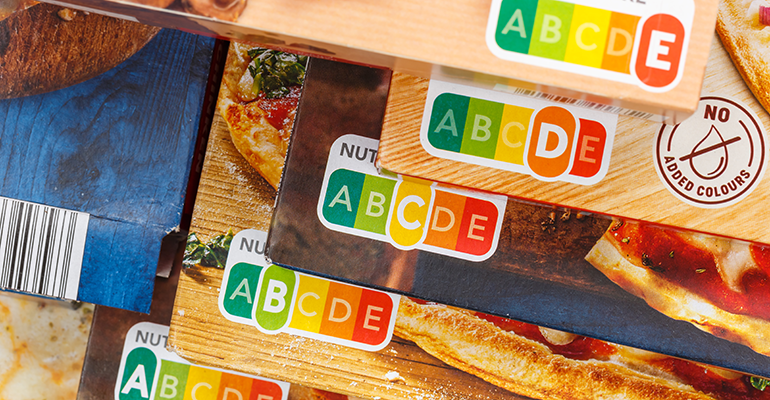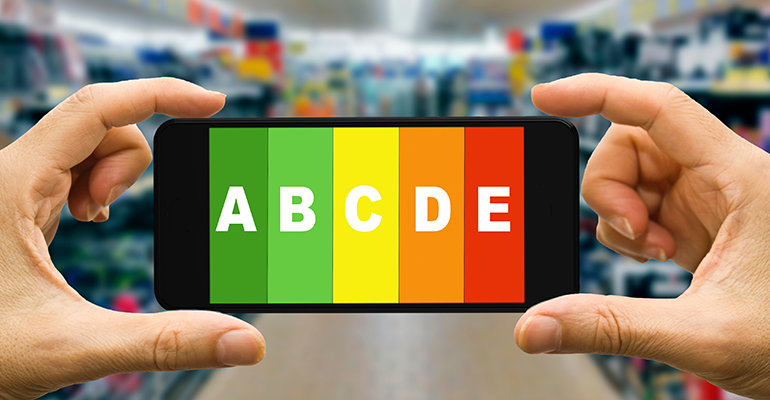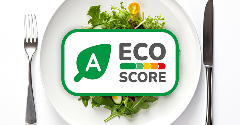News
Nutri-Score will be implemented in the Netherlands in 2024
20 Sep 2023
Nutri-Score will be adopted as the official – but voluntary – food choice logo in the Netherlands from 1 January 2024, the Dutch government confirms. How will this impact the industry?
A labelling system designed to better inform consumers about the nutritional quality of food products, Nutri-Score is fast becoming the norm on supermarket shelves across Europe.
Following an initial announcement by secretary of state for health Maarten van Ooijen last April, the Dutch government has confirmed that Nutri-Score will be implemented as the Netherlands’ food logo of choice from January 2024. This move adds the Netherlands to the growing list of countries embracing the voluntary nutrition labelling scheme, including France and Germany.

“This is, above all, excellent news for consumers and public health but also for all food manufacturers who want to play the game of transparency and inform consumers about the nutritional quality of the food they produce with a simple tool, easily understood by all,” said Serge Hercberg, creator of Nutri-Score and professor of nutrition at the University of Sorbonne.
The introduction of Nutri-Score aligns with the government's aims to curb increasing rates of obesity in the country, as laid out in the Dutch Ministry of Health’s National Prevention Agreement of 2019. According to the research, in 2017, almost half (48.7%) of Dutch adults were overweight and 14% were obese, with rates expected to keep on rising.
Dutch consumers perceive Nutri-Score positively
To increase access to healthy food products, the policy promises to introduce one coherent and digestible “healthy choice logo”. The hope is that Nutri-Score can deliver on this.
“The decision of the Dutch government to adopt the Nutri-Score as a nutritional label recognised as the only one supported by the public health authorities sends a clear message to consumers and manufacturers that it is ‘a credible tool based on science and validated by numerous scientific studies,’” Hercberg said.
Research published in Appetite journal found that Nutri-Score was perceived favourably by Dutch consumers and outperformed other nutrition labels in helping them assess the nutritional quality of products. A second study conducted on Dutch consumers showed that Nutri-Score was effective in promoting healthy food choices amongst shoppers.
“We can anticipate that Dutch consumers, as is the case in other countries that have adopted Nutri-score, will support it. Studies have shown that in France 94% are in favour of Nutri-Score on packaging and 57% declare that they have already changed at least one of their purchasing habits thanks to the Nutri-Score,” Hercberg said.
New requirements for food manufacturers
Food brands that choose to adopt the Nutri-Score on their products must register with Santé Publique France, the brand owner of Nutri-Score, and display the logo on all products within a 24-month period.
The logo is made up of letters and colours ranging from A to E and green to red, with red denoting an unhealthier product. The algorithm ranks products from -15 for the healthiest to +40 for the unhealthiest and is based on a range of nutritional factors including sugar, saturated fat, salt, and additive content.
As has been observed in countries where Nutri-Score is already in place, the introduction of the system will likely influence the reformulation efforts of food manufacturers.
“The trend we see in all countries that have adopted Nutri-Score is the same: we observe a real effect on food reformulation with an improvement of the nutritional quality of food products. We see less sugar, saturated fats and salt, more fibre, less additives (that are more and more rejected by consumers), and increased use of better ingredients,” said Hercberg.
Not all are in favour of the change
Nutri-Score has faced criticism for discriminating against traditional foods such as many of those included in a healthy Mediterranean diet. The scheme, which does not take into account ultra-processing (UPF), was recently described as ‘fake news’ in a report co-signed by more than 300 European scientists and health professionals.
“Of course, it is important to remember that front-of-pack nutrition labels’ primary role is one of information provision. Companies deciding to make their products less sugary, salty or fatty is a welcome, if secondary, side effect. Products for which reformulation might be trickier should not therefore be excluded from any future mandatory EU-wide front-of-pack nutrition label,” said Emma Calvert, senior food policy officer at BEUC.
 © AdobeStock/Visualmind
© AdobeStock/Visualmind
“Consumers have a right to see the front-of-pack nutrition label on these products as much as any other. Such labels are a public health instrument after all, the aim of which is to guide consumers towards healthier food choices.”
Educating consumers is key
Whether manufacturers welcome the Nutri-Score or not, implementation of the scheme will be a challenge for many. Policymakers must ensure that consumers are sufficiently educated on the purpose and use of the scheme for it to be effective in supporting them to make healthy food choices.
“BEUC supports the European Commission’s commitment to come forward with a mandatory EU-wide front-of-pack nutrition label and we believe the Nutri-Score is the best label for the job. However, should the Commission fail to progress on this file, member states should be permitted to go further and make a front-of-pack nutrition label mandatory in their member state,” Calvert said.
“In the short term, authorities should ensure that the launch of a front-of-pack nutrition label in their country’s supermarket shelves is accompanied by a relevant communication campaign to explain what the label is, how it works and how to use it in the supermarket. As user-friendly and helpful as nutrition labels can be, consumers should also be encouraged, if time and resources allow, to make home-cooked and freshly-prepared healthy meals. For when that’s not possible, labels can help them choose a less fatty, salty or sugary pre-made option.”
Related news

UK Government overhauls childhood obesity strategy
21 Nov 2025
The UK Government has announced a new package of measures designed to reverse the nation’s childhood obesity epidemic following the release of statistics revealing the scale of the crisis.
Read more
How younger consumers are redefining ingredient choices and rejecting brand loyalty
18 Nov 2025
Gen Z and millennial consumers’ preferences for transparency, functionality, and purpose are “redefining the very nature of consumption itself”, says SPINS.
Read more
New UPF standard hoped to offer consumers ‘coherence and clarity’
10 Nov 2025
Ingredients companies are being urged to enter “a new era of partnership and innovation” following the launch of the industry’s first non-UPF verification scheme.
Read more
Ingredient quantities mislabelled on popular protein bars, independent tests show
5 Nov 2025
Some popular protein bars contain more fat, carbs, and/or sugars than claimed on their labels, independent nutrition testing reveals.
Read more
Does promoting protein content push up plant-based sales?
27 Oct 2025
Promoting the protein content of meat-free products is a more effective sales strategy than adding carbon labels, a study of UK bakery chain Greggs suggests.
Read more
Supplement shoppers seek storytelling and science-backed suppliers
17 Oct 2025
Supplement consumers want specific health benefits that focus on prevention and personalisation, according to data from HealthFocus International.
Read more
Food fraud risks rise as brands fight economic and environmental headwinds
10 Oct 2025
Climate change, geopolitics, regulations, and demand for sustainable products are pushing up food fraud and adulteration risks, warns a world-leading food fraud expert.
Read more
The growing appeal of nutrient-dense food claims
2 Oct 2025
Nutrient-dense claims are rising as consumers reject the “empty calories” of UPFs in favour of products that provide meaningful nutrition with every calorie, Mintel data shows.
Read more
What does MAHA mean for the US nutraceutical industry?
30 Sep 2025
Industry associations have expressed mixed reactions to new policy directions on health and nutrition under the Make America Health Again (MAHA) banner.
Read more
Eco-Score labels improve consumer identification of sustainable foods
22 Sep 2025
The presence of a front-of-pack Eco-Score label improves consumers' accuracy in identifying sustainable food products from 52% to 72%, a study suggests.
Read more